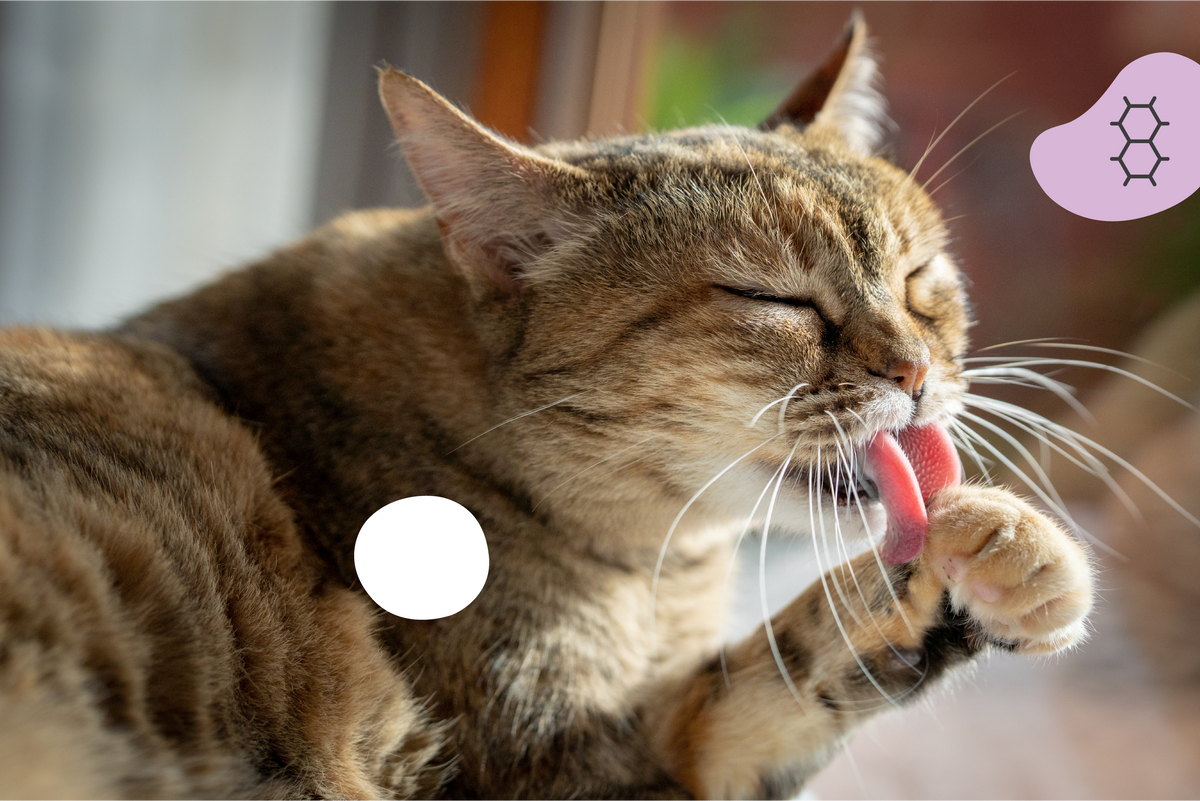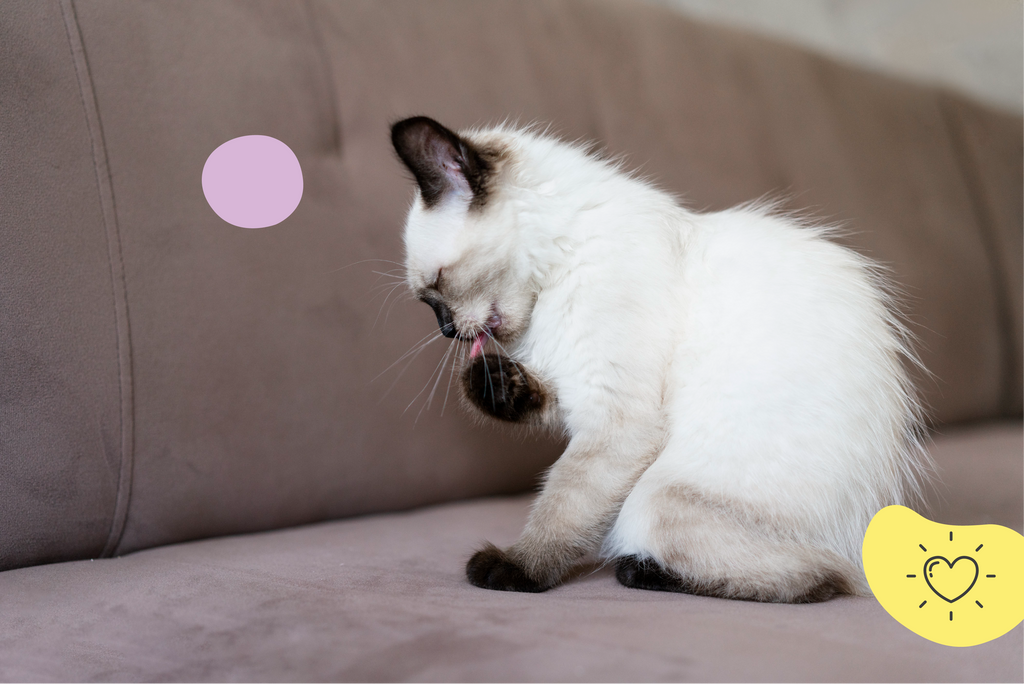Why does my cat lick me?

If you're a cat owner, you may have noticed that your cat licks you from an occasional time. You might wonder why your cat licks you, and if it means anything in particular. In reality, when cats lick their owners, it can mean a number of things.
In this article, we'll explore:
We'll also look at what you can do if you don't like your cat licking you, or if you're wondering whether it's hygienic for you and your pet.But first, let's get back to basics: why do cats lick themselves?
As mentioned earlier, cats lick themselves to clean and care for their fur. However, there are more reasons behind this behaviour than just that. Cats are very clean animals, and they take their personal hygiene very seriously. They lick themselves not only to remove dirt and parasites, but also to stimulate their blood circulation and keep their coat in good condition. What's more, licking is also a way for cats to calm and reassure themselves, as it releases endorphins that have a soothing effect on them.
Now that we know why cats lick themselves, let's look at why they lick each other. Cats that live together often have a very strong bond, and mutual grooming is a way for them to strengthen their social bond. Mutual licking can also help to establish a hierarchy within a group of cats. The dominant cat will often lick the other cats to show them that it is in charge. Finally, mutual licking can help to reinforce the trust and well-being of cats towards each other.
But what about when your cat licks you? It may sound strange, but it's actually quite common behaviour in domestic cats.
So why does your cat lick you?
If you're a cat owner, chances are your feline has already licked you. While this may seem cute and affectionate, some cat owners may be concerned about this behaviour. However, there's usually nothing to worry about when your cat licks you. In fact, it can be a sign of affection and a strong bond between you and your cat.
He wants to show you his affection
Licking is a common way for cats to show affection and strengthen their bond with their owner. Cats may lick their owners to express their love and attachment to them. Their tongue is in fact a kind of natural brush, enabling them to clean not only their own coat, but also their owner's skin.
Your cat wants to mark its territory
By licking their owner, cats can also mark their territory by leaving their scent on their owner's skin. This behaviour is common among cats who share their home with other animals, as it allows them to mark their territory and show their presence.
Discover how to better understand and manage your cat's stress !
Are there any risks of being licked by a cat?
Cats have rough tongues which they use to groom themselves and express their affection for their humans. However, it's natural to wonder whether there are any risks associated with being licked by a cat. The risks can vary depending on the area of the body being licked.
On the face
Licking a cat's face is often seen as a sign of affection. However, there can be certain risks associated with this. Firstly, cats' mouths can harbour a number of bacteria, some of which can cause infections in humans. For example, pasteurellosis infection can be transmitted this way, although the risk is generally low.
What's more, the eyes, nose and mouth are entry points for many infections. If a cat licks these areas, it could potentially transmit pathogens. Similarly, people allergic to cats may have an allergic reaction if the cat licks their face.
On the skin
Intact skin is an excellent barrier against infection. So if a cat licks your skin, the risk of infection is generally very low. However, some people may have an allergic reaction to cat saliva, causing redness, itching or a rash.
It is also possible for a cat to transmit parasites such as fleas or ticks through licking, although this is more likely if the cat itself has these parasites on its body.
On a wound
If a cat licks a wound, there is a greater risk of infection. As mentioned above, a cat's mouth contains a variety of bacteria that can potentially cause infection if they come into contact with an open wound. Pasteurellosis, a bacterial infection often associated with cat bites and scratches, can also be transmitted by licking a wound. So it's best to prevent your cat from licking an open wound and to ensure that any wound licked by a cat is cleaned as quickly and thoroughly as possible.
What can I do to satisfy my cat's needs?
If your cat licks you, don't panic! It's simply a way of showing affection and strengthening your bond. However, it's important to respond to your cat's needs to strengthen your relationship.
One way of doing this is to play with your cat and use interactive toys to stimulate its intellect and strengthen your bond. Brushing is also an effective way of caring for your cat's fur and spending quality time with him. It also helps your cat to relax, as brushing can have a calming effect on cats.
However, if your cat licks excessively or compulsively, it may be a sign of stress or anxiety. In this case, it's important to consult a vet to rule out any underlying health problems. Indeed, a cat that licks compulsively may be suffering from a medical condition or need behavioural treatment.
Finally, to help your cat feel more relaxed and reduce his anxiety levels, we've got a recipe for you! Try Marly & Dan Calm Bites treats. These treats contain natural ingredients that have a calming effect on cats, such as chamomile and valerian. Cat treats can be a great way to reward your cat for positive behaviour, such as getting brushed or playing with you.
In short, taking care of your cat and responding to its needs is an excellent way of strengthening your bond with it. If your cat licks you, this may be a sign of affection, but don't forget that cats also need other forms of interaction to feel safe and loved. By responding to your cat's needs, you can strengthen your relationship and create a strong, lasting friendship with your pet.




